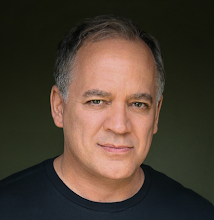Goats and sheep surely must have been dancing together all over creation today as the news spread that I was up at 8:15 AM. I committed to going to an open Broadway chorus call for a revival of Guys & Dolls. Being a middle-aged tenor who can pass for mid-century gangster, I figured I was not too delusional attempting this. Part of me imagined I could get a job and stay here for a while, bringing in some okay greenbacks. Part of me was being romantic, keying into one of my childhood dreams. Part of me was being realistic about landing a gig as I have been singing publicly to decent effect lately. And part of me just wanted to see if I could commit to getting up with the local Queens farmers and stick to such an uncomfortable plan. The audition went off with no great consequence. I moved on.
Aperture, the gallery that is connected to the magazine, was having a show of Civil Rights era photographs by Bruce Davidson (commissioned) and others (who just did it at their whim). Fascinating photos. These black people were pissed. And wouldn’t you be? One-hundred years after the Civil War had ended and then what? Moving.
A quick jaunt back to Queens to just, I don’t know, sit.
Then, back out to a fabulous play called Passing Strange. Now, who on earth has heard of a guy named Stew? I mean, he’s from California and he’s really right there, not far from where I live. I was clueless. He’s this pretty cool cat who founded a pop rock group in LA called The Negro Problem. He’s bright as hell. Born and raised in moderate middle class comfort in Los Angeles, the play’s story focuses on how he discovers that he’s an “artist”, a musician, and heads off to Amsterdam and Berlin and apes the downtrodden black American—to much European support and awe. (Not unlike Tracey Chapman’s m.o. when I went to college with her in Boston.) There is a lot of irony here. I think what sums it up in the piece is when the young character is asked by an interviewer, “Do you consider that the entire source of your work comes from being black?”
His response is, “Yes and No, so Yo.”
It’s post James Baldwin with a tiny dash of In Living Color and a level of intelligence that will not dip down.
The show is ninety-five percent sung (yes, I calculated it) with a band of five (including Stew as the narrator) and a brilliant cast of six. The musicians and the actors were out of this world talented. The actors were particularly beautiful. I just sat there and thought, “These black people are the true Americans, the ones who have really been through the whole horrible thing. And they’re hot. Everyone should have one.”
The ensemble played multiple roles to great effect and no one was afraid to ironically flash the big black bug-eyes or overdone toothy grins of yes’m-year. Again, the performers had such a profound awareness of the exact pitch in all their characters, whether they were Berliner anarchists, toked-out Amersterdammies, or what have you. The music was upbeat, driving and right on, as far as this soft-hit white guy who likes a good driving musical was concerned. The end the play became a bit obvious with its family ties thing. But art isn’t easy and we all do things to unify our stories. Let’s face it---the human race has been powered by work and family (the best cultures are ones that have liberal philosophies with a populace that continues to work hard with an eye toward human connection—Me thinks.) So it is no surprise that the family thing rears its head in a big way in many stories. With this tilt, the irony faded which I found disagreeable. But American audiences usually cannot endure irony from stem to stern. They often find such things morally unmooring which quickly translates into box office poison. Too bad. But this did not spoil the first eighty-nine percent of brilly brill brilliance.
If you’re in New York, this is something worth experiencing. If it comes to a civic center near you, check it out.

No comments:
Post a Comment